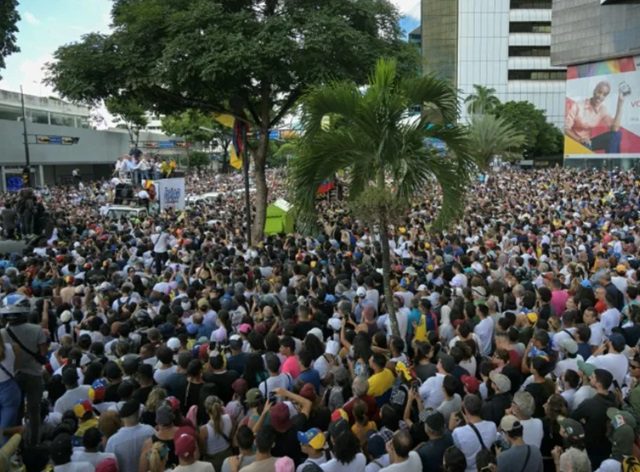BTN News: In a dramatic turn of events following the recent Venezuelan presidential elections, President Nicolás Maduro has called for the imprisonment of opposition leader María Corina Machado and her candidate, Edmundo González Urrutia. This call came amid growing allegations of electoral fraud and international recognition of González Urrutia as the legitimate winner.
Maduro, in a public statement, emphasized his intention to present all electoral records to the Supreme Court of Justice (TSJ). He asserted his victory with 51% of the vote, as proclaimed by the National Electoral Council (CNE). This move is seen as a response to claims by the opposition, which holds that González Urrutia secured 67% of the votes based on their copies of 80% of the electoral records.
The opposition, led by Machado, has refused to accept the official results. They insist that González Urrutia won by a substantial margin. Machado’s response to Maduro’s threats was a call for mass mobilization. She urged the public to defend what she described as the true electoral outcome. Machado highlighted the regime’s choice of repression and violence over democratic negotiation.
Maduro, aligning himself with the legacy of Hugo Chávez, maintained that the Gran Polo Patriótico and the United Socialist Party of Venezuela are prepared to present their evidence to the TSJ. This stance has been met with skepticism and condemnation from international observers and organizations. These include the Organization of American States (OEA) and the European Union. Both have criticized the threats against opposition leaders.
Protests erupted in Caracas and other cities following the election. These resulted in clashes and casualties. Machado has accused the government of a brutal crackdown. She claimed that 16 people have died in the protests. In contrast, Maduro has blamed the opposition for the violence. He asserted that they have blood on their hands and must be imprisoned.
The situation has drawn sharp international attention. The United States, through its diplomat Brian Nichols, has voiced strong support for González Urrutia. Nichols accused the CNE of delaying the announcement of results to fabricate them. Similarly, Luis Almagro, the OEA’s secretary-general, has announced intentions to present charges against Maduro at the International Criminal Court. These charges are for the violence and deaths resulting from the protests.
Despite these tensions, hundreds of Maduro’s supporters have demonstrated in Caracas. They rejected the opposition’s claims and urged acceptance of Maduro’s victory. The political impasse has paralyzed parts of the capital. Businesses are closed and public transport is disrupted.
Efforts for international mediation are underway. Colombia, Brazil, and Mexico are engaging in talks to facilitate a peaceful resolution. Colombian President Gustavo Petro, an ally of Maduro, has called for a transparent recount with international oversight. He emphasized the need for a democratic resolution.
As the situation unfolds, Venezuela remains on edge. The opposition and government are locked in a contentious battle over the nation’s political future. The call for mobilization by Machado suggests that the coming days may see increased civil unrest and heightened international diplomatic activity. The outcome of this crisis could significantly impact Venezuela’s political landscape and its relations with the global community.


